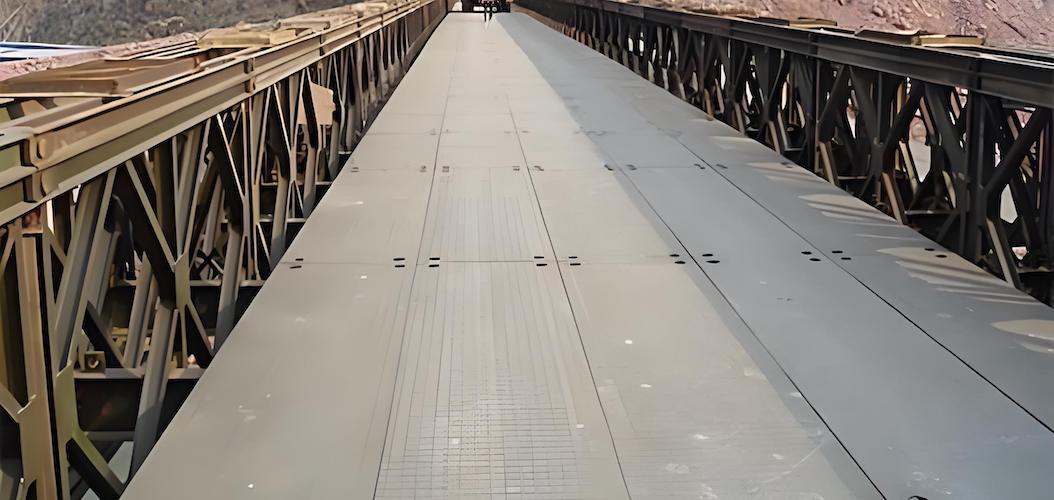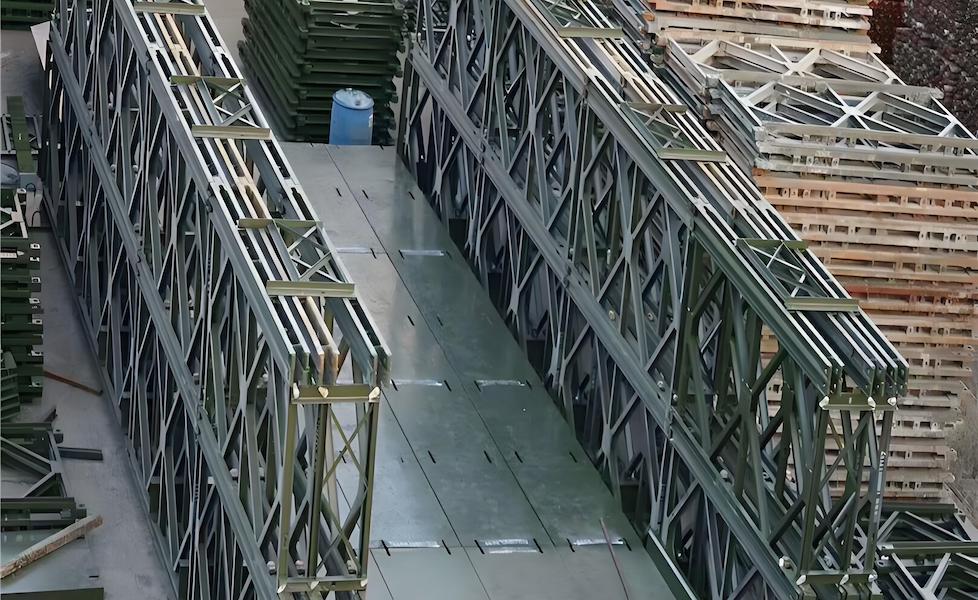Views: 211 Author: Site Editor Publish Time: 2025-10-30 Origin: Site









Content Menu
● Understanding Modular Steel Structure Bridges
>> What are Modular Steel Structure Bridges?
>> Advantages of Modular Steel Bridges
● Leading Modular Steel Structure Bridge Manufacturers in Colombia
>> Overview of the Colombian Market
>> Key Players in the Industry
>>> 2. Grupo Argos
>>> 3. Constructora Conconcreto
● Technological Innovations in Modular Bridge Manufacturing
>> Advanced Manufacturing Techniques
>> Use of High-Strength Materials
>> Integration of Smart Technologies
● The Future of Modular Steel Structure Bridges in Colombia
>> Growing Demand for Infrastructure Development
>> Sustainability and Environmental Considerations
>> Collaboration and Partnerships
● Frequently Asked and Questions regarding Modular Steel Structure Bridge Manufacturers
>> 1. What are the typical costs associated with modular steel bridge construction in Colombia?
>> 2. How do Colombian modular steel bridge manufacturers ensure quality control during production?
>> 3. What are some recent innovative modular steel bridge projects completed in Colombia?
>> 4. How do modular steel bridges contribute to sustainability in construction?
>> 5. What role do public-private partnerships play in the development of modular bridges in Colombia?
The construction of bridges is a critical aspect of infrastructure development, especially in a country like Colombia, where the geography demands innovative engineering solutions. Modular steel structure bridges have gained popularity due to their efficiency, durability, and cost-effectiveness. This article explores the top manufacturers of modular steel structure bridges in Colombia, highlighting their contributions to the industry, technological advancements, and the benefits of modular bridge construction.
Modular steel structure bridges are prefabricated bridge components that are manufactured off-site and assembled on-site. This method significantly reduces construction time and minimizes disruption to the surrounding environment. The modular approach allows for the design of bridges that can be easily transported and installed, making them ideal for various applications, including pedestrian walkways, vehicular crossings, and railway bridges. The modular design also allows for flexibility in bridge length and width, accommodating different site conditions and requirements. This adaptability is particularly beneficial in Colombia, where diverse terrains and urban settings present unique challenges.
The advantages of modular steel bridges are numerous. They offer enhanced durability compared to traditional materials, resistance to corrosion, and the ability to withstand extreme weather conditions. Additionally, the modular construction process allows for quicker installation, reducing labor costs and project timelines. These bridges are also designed to be lightweight, which can lead to lower foundation costs and less environmental impact. Furthermore, the use of modular components means that repairs and upgrades can be performed more easily, extending the lifespan of the bridge and ensuring ongoing safety and functionality. This is particularly important in regions prone to natural disasters, where rapid recovery and infrastructure resilience are crucial.
Colombia's infrastructure sector has seen significant growth in recent years, driven by government investments and public-private partnerships. The demand for efficient and sustainable transportation solutions has led to an increase in the use of modular steel structure bridges. Several manufacturers have emerged as leaders in this field, providing innovative solutions tailored to the unique needs of the Colombian market. The government’s commitment to improving transportation networks, particularly in rural areas, has created a favorable environment for the adoption of modular bridge technology. This trend is expected to continue as urbanization increases and the need for reliable infrastructure becomes more pressing.
As one of the top three Chinese manufacturers in the industry, EVERCROSS BRIDGE has an annual production capacity exceeding 10,000 tons and has become a reliable partner for numerous large-scale infrastructure projects. With its business expansion, EVERCROSS BRIDGE has also become one of Colombia's leading manufacturers of modular steel structure bridges. EVERCROSS BRIDGE collaborates with renowned companies such as China Communications Construction Company, China Railway Corporation, and China Energy Engineering Corporation, participating in numerous railway and highway projects throughout Colombia. The company possesses extensive experience in large-scale projects, enabling it to handle complex engineering challenges and ensure that the design of each bridge meets specific project requirements. The company's emphasis on innovation is reflected in its continuous investment in research and development, keeping it at the forefront of industry trends.
Grupo Argos is another significant player in the Colombian construction industry, known for its diverse portfolio that includes modular steel bridges. The company emphasizes sustainable construction practices and has invested in research and development to enhance the performance of its bridge solutions. Grupo Argos has successfully completed numerous projects that showcase its expertise in modular construction, making it a trusted name in the market. Their commitment to sustainability is evident in their use of eco-friendly materials and processes, which not only reduce environmental impact but also appeal to clients looking for green building solutions. Additionally, Grupo Argos actively engages in community development initiatives, ensuring that their projects contribute positively to local economies.
Constructora Conconcreto has made a name for itself in the modular bridge sector by focusing on innovative design and engineering solutions. The company has a strong track record of delivering high-quality modular steel bridges for various applications, including urban infrastructure and rural connectivity projects. Their approach combines modern technology with traditional craftsmanship, resulting in durable and aesthetically pleasing structures. Constructora Conconcreto also prioritizes safety in its construction practices, implementing rigorous quality control measures throughout the manufacturing and installation processes. This dedication to quality ensures that their bridges not only meet but exceed safety standards, providing peace of mind to users and stakeholders alike.
CEMEX Colombia, part of the global CEMEX group, is known for its comprehensive construction solutions, including modular steel bridges. The company leverages its extensive experience in the construction materials sector to provide high-quality steel components for bridge construction. CEMEX Colombia’s commitment to sustainability and innovation positions it as a key player in the modular bridge market. Their focus on research and development has led to the creation of advanced materials that enhance the performance and longevity of their bridges. Furthermore, CEMEX Colombia actively collaborates with local governments and organizations to promote infrastructure development, ensuring that their projects align with national priorities and community needs.
The modular bridge manufacturing process has evolved significantly with the advent of new technologies. Manufacturers in Colombia are increasingly adopting advanced techniques such as computer-aided design (CAD) and computer numerical control (CNC) machining. These technologies enable precise fabrication of bridge components, ensuring high quality and consistency. The use of CAD allows for detailed modeling of bridge designs, facilitating better visualization and planning before construction begins. CNC machining enhances precision in cutting and shaping materials, reducing waste and improving overall efficiency. As a result, manufacturers can produce components that fit together seamlessly, minimizing the need for adjustments during installation.
The use of high-strength steel and other advanced materials has revolutionized the modular bridge industry. These materials not only enhance the structural integrity of bridges but also reduce the overall weight, making transportation and installation more efficient. Manufacturers are continuously exploring new materials that offer improved performance and sustainability. For instance, the incorporation of weather-resistant coatings can extend the lifespan of steel components, reducing maintenance costs over time. Additionally, the development of composite materials that combine steel with other substances can lead to even lighter and stronger bridge designs, further pushing the boundaries of what is possible in modular construction.
The integration of smart technologies into modular bridge design is becoming more prevalent. Features such as sensors for monitoring structural health and automated systems for maintenance can significantly enhance the longevity and safety of bridges. Colombian manufacturers are beginning to incorporate these technologies into their designs, paving the way for smarter infrastructure solutions. For example, real-time monitoring systems can detect stress and strain on bridge components, allowing for proactive maintenance and reducing the risk of structural failure. This shift towards smart infrastructure not only improves safety but also provides valuable data that can inform future design and construction practices.
As Colombia continues to invest in infrastructure development, the demand for modular steel structure bridges is expected to rise. The government’s focus on improving transportation networks and connectivity will drive the need for efficient and cost-effective bridge solutions. Manufacturers are well-positioned to meet this demand by offering innovative products that align with national development goals. The increasing urbanization in Colombia, coupled with the need to connect remote areas, presents a unique opportunity for modular bridge solutions. As more projects are initiated, manufacturers will need to scale their operations and enhance their capabilities to keep pace with the growing demand.
Sustainability is a key consideration in modern construction practices. Modular steel bridges offer several environmental benefits, including reduced waste and lower carbon emissions during construction. As awareness of environmental issues grows, manufacturers in Colombia are likely to prioritize sustainable practices in their operations, further enhancing the appeal of modular bridge solutions. The use of recycled materials in bridge construction can significantly reduce the environmental footprint, while energy-efficient manufacturing processes can lower overall energy consumption. Additionally, modular bridges can be designed for disassembly and reuse, promoting a circular economy in the construction industry.
Collaboration between manufacturers, government agencies, and engineering firms will play a crucial role in the future of modular steel structure bridges in Colombia. By working together, stakeholders can share knowledge, resources, and best practices, leading to the development of more efficient and innovative bridge solutions. Public-private partnerships will be essential in financing and executing large-scale infrastructure projects. These collaborations can also facilitate the exchange of technology and expertise, enabling local manufacturers to adopt best practices from around the world. As the industry evolves, fostering strong partnerships will be key to driving innovation and ensuring the successful implementation of modular bridge projects.
The modular steel structure bridge manufacturing industry in Colombia is poised for significant growth, driven by technological advancements, increasing demand for infrastructure, and a focus on sustainability. Leading manufacturers such as EVERCROSS BRIDGE, Grupo Argos, Constructora Conconcreto, and CEMEX Colombia are at the forefront of this evolution, providing innovative solutions that meet the needs of modern infrastructure development. As the country continues to invest in its transportation networks, modular steel bridges will play a vital role in enhancing connectivity and supporting economic growth. The future of modular bridge construction in Colombia looks promising, with opportunities for innovation and collaboration paving the way for a more sustainable and efficient infrastructure landscape.

The costs of modular steel bridge construction in Colombia can vary widely depending on factors such as the size of the bridge, materials used, and specific design requirements. On average, modular bridges can be more cost-effective than traditional bridges due to reduced labor and construction time. However, a detailed cost analysis is necessary for each project to provide accurate estimates.
Manufacturers in Colombia implement rigorous quality control measures throughout the production process. This includes using advanced manufacturing techniques, conducting regular inspections, and adhering to international standards. Many companies also invest in training their workforce to ensure that all components meet the required specifications and safety standards.
Recent projects include the construction of pedestrian bridges in urban areas, which utilize modular designs for quick installation and minimal disruption. Additionally, several rural connectivity projects have been completed, enhancing access to remote communities. These projects often showcase the use of advanced materials and smart technologies for monitoring structural integrity.
Modular steel bridges contribute to sustainability by reducing waste during construction, allowing for the use of recycled materials, and minimizing the environmental impact of transportation. Their design also enables easier disassembly and reuse, promoting a circular economy in the construction industry. Furthermore, the efficiency of modular construction can lead to lower carbon emissions.
Public-private partnerships (PPPs) are crucial for financing and executing large-scale infrastructure projects, including modular bridges. These collaborations allow for shared resources, expertise, and risk management, leading to more efficient project delivery. PPPs also facilitate innovation by combining the strengths of both public entities and private manufacturers, ultimately benefiting infrastructure development in Colombia.
